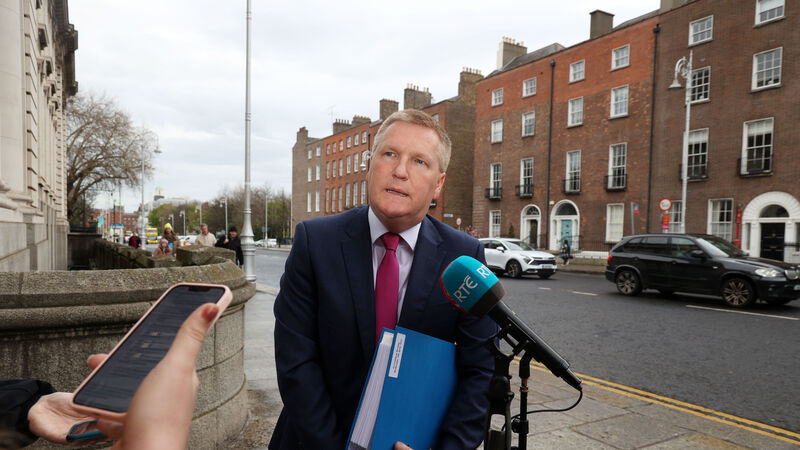Government surpluses to be invested in fund

Finance Minister Michael McGrath said some of the windfall corporation tax receipts could also be used to pay down Government debt, which is projected to be €224.4bn this year. Picture: Sam Boal/Rollingnews.ie
Windfall corporation tax receipts expected this year could be used to pay down debt or invested in a fund to offset the rising cost of demographic changes, Finance Minister Michael McGrath has said.
In its Stability Programme Update published on Tuesday, the Government is forecasting a €10bn surplus this year followed by a more than €16bn surplus next year which is largely on the back of corporation tax receipts.











